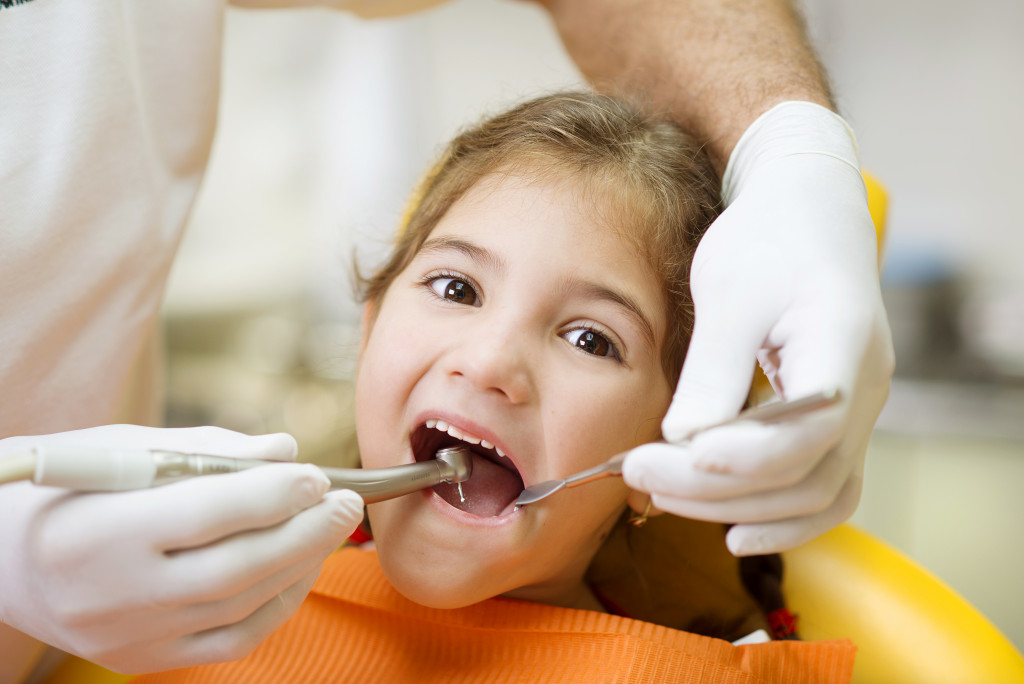As a parent, it’s important for you to be aware of the dental issues that can affect your child at different stages in their development. By knowing what to look for and taking proactive steps to prevent them, you can help ensure that your child has healthy teeth and gums throughout their life.
Parents want to spare their children from pain and discomfort, from when they are babies to their early adulthood. This article will discuss common dental problems that can affect your children and you must monitor them. It will also discuss the ways you can prevent them and what to do if they occur.
Teething
This is a normal process that all infants go through as their first teeth start to come in. However, it can be a difficult time for both babies and parents. Babies may experience discomfort, drooling, irritability, and trouble sleeping.
As a parent, you can help ease your baby’s discomfort by giving them something to chew on (such as a teething ring), massaging their gums with your finger, or using a topical teething gel. You can ask your pediatrician for a recommendation on the best teething gel to use.
As soon as your baby’s first tooth erupts, it is time to bring the child to the dentist. You should then do so every six months thereafter.
Baby Bottle Tooth Decay
This is a type of tooth decay that can occur when babies fall asleep with a bottle of milk, formula, or juice. The sugary liquids pool around the baby’s teeth and gums, which can lead to cavities.
To help prevent baby bottle tooth decay, you should avoid putting your baby to bed with a bottle. If you do give them a bottle before bedtime, be sure to brush their teeth afterward. You should also try to wean your child off of bottles by their first birthday.
Thumb Sucking
Many infants and young children suck on their thumbs or other objects (such as pacifiers). While this is normal behavior, it can cause problems if it continues for too long. Thumb sucking can cause misalignment of the teeth, an overbite, or an open bite where the front teeth don’t touch when the mouth is closed.
If your child is still sucking their thumb by the time they are four years old, you should try to break the habit. You can do this by praising them when they don’t suck their thumb, providing them with alternative activities to do with their hands, and gently discouraging them when they do suck their thumb.
Cavities
Cavities are one of the most common dental problems in children. They occur when bacteria in the mouth form plaque on the teeth, which then breaks down the enamel and causes holes.
You can help prevent cavities in your child by having them brush their teeth twice a day with fluoride toothpaste, flossing daily, and eating a balanced diet. You should also take them for regular dental checkups and cleanings.
If your child does get a cavity, it will need to be treated by a dentist. The treatment will depend on the severity of the cavity, but it may involve a filling, crown, or root canal.

Tooth Enamel Erosion
Tooth enamel erosion is caused by acidic drinks such as soda and foods such as citrus fruits. When the enamel is eroded, it can lead to sensitivity to hot, cold, or sweet foods.
To help prevent tooth enamel erosion, you should have your child brush their teeth twice a day with fluoride toothpaste and avoid giving them acidic drinks and foods. You should also take them for regular dental checkups and cleanings. If your child’s teeth are already showing signs of erosion, the dentist may recommend a fluoride treatment or sealant.
Gingivitis
Gingivitis is an inflammation of the gums that can lead to pain, bleeding, and swelling. It is caused by plaque buildup on the teeth.
To help prevent gingivitis, you should have your child brush their teeth twice a day with fluoride toothpaste, floss daily, and eat a balanced diet. You should also take them for regular dental checkups and cleanings. If your child does get gingivitis, it can be treated with a professional cleaning and good oral hygiene at home.
Misaligned Teeth
Misaligned teeth can occur when the teeth do not come in straight, or they become crooked over time. This can be caused by thumb sucking, genetics, or injury to the mouth.
Misaligned teeth can be treated with braces. The type of braces will depend on the severity of the misalignment and the age of the child. In some cases, surgery may be necessary.
Wisdom Teeth
Wisdom teeth are the third molars that come in at the back of the mouth, typically around the ages of 17 to 21. They can cause problems if they become impacted beneath the gum line or if they grow crooked.
These teeth are not useful. If wisdom teeth become impacted, they can cause pain, infection, and damage to adjacent teeth. If they are growing crooked, they can crowd other teeth and lead to misalignment. Wisdom teeth removal by a dentist is often necessary. The procedure is usually done under local anesthesia followed by home care with soft food and pain killers.
Prevention and Immediate Treatment are Key
There are many dental issues that you need to watch for in your children. Some of these include baby bottle tooth decay, thumb sucking, cavities, tooth enamel erosion, gingivitis, misaligned teeth, and wisdom teeth.
You can help prevent these problems by having your child brush their teeth twice a day with fluoride toothpaste, flossing daily, and eating a balanced diet. You should also take them for regular dental checkups and cleanings. If your child does get a dental problem, it is important to seek treatment right away to avoid further problems.




